


Congestive Heart Failure (CHF) is a long-term condition where the heart struggles to pump blood effectively, leading to fluid buildup and various symptoms. This can be particularly concerning for elderly patients, who may feel anxious or uncertain about their health. It’s important to understand the causes of CHF and recognize that symptoms can sometimes be atypical in older adults. By implementing personalized treatment plans and making thoughtful lifestyle changes, we can significantly improve their quality of life and health outcomes.
Have you or a loved one experienced symptoms of CHF? Understanding your condition is the first step towards managing it effectively. Remember, you are not alone in this journey. There are resources and support systems available to help you navigate these challenges. Together, we can work towards a healthier future, filled with hope and better health.
Understanding Congestive Heart Failure (CHF) is vital, particularly for the elderly, as this condition presents significant health challenges that can disrupt their quality of life. This article gently explores the complexities of CHF, examining its causes, symptoms, and the latest treatment options available to enhance patient care. However, with numerous factors influencing heart health, how can elderly patients and their caregivers effectively navigate the maze of information and support to ensure optimal management of this condition? Together, we can find the answers and support you need.
CHF medical, or Congestive Heart Failure, is a long-term condition that can be concerning, as it means the heart struggles to pump blood effectively. This can lead to a buildup of fluid in the lungs and other body tissues, which may cause discomfort and anxiety. Various heart diseases, such as coronary artery disease and hypertension, can contribute to CHF.
At Amavita Heart and Vascular Health®, we understand that for older individuals, the unique challenges of CHF medical conditions often arise, especially when other health issues are present. Our comprehensive cardiac evaluations are designed with your needs in mind, assessing risk factors and symptoms like shortness of breath and fatigue during activities. This allows us to create personalized treatment plans tailored specifically for you.
We utilize advanced imaging and testing to ensure accurate diagnoses are delivered promptly, and our minimally invasive treatment options help you recover quickly, so you can return to your daily activities. By focusing on preventive strategies and innovative cardiovascular care, we aim to enhance the quality of life for our elderly patients living with CHF medical issues. Remember, you are not alone in this journey; we are here to support you every step of the way.
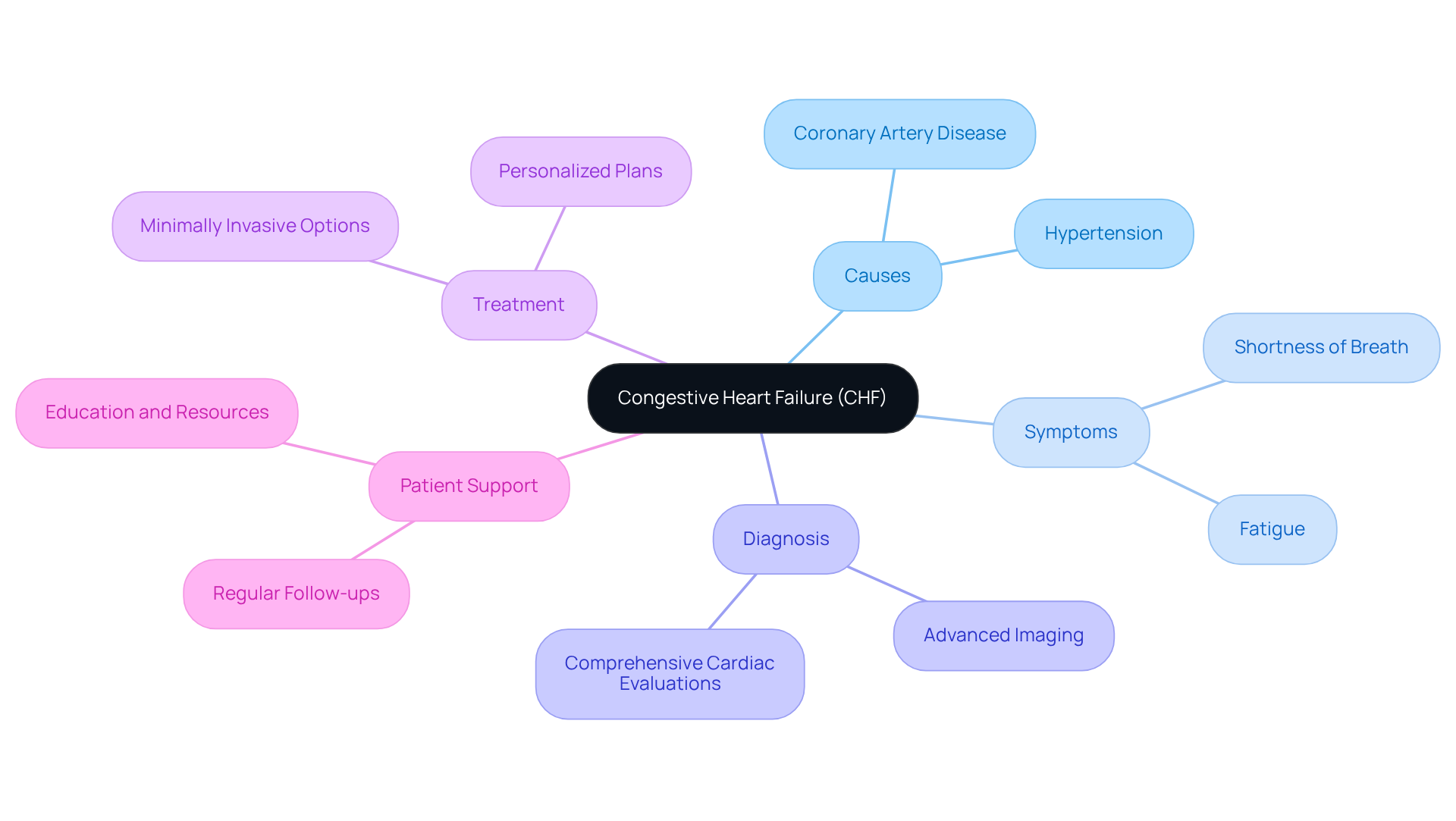
Several factors can contribute to the development of CHF (congestive heart failure), especially in elderly patients. It's important to understand these causes to address any concerns you may have about your health. Common causes include:
In addition to these causes, several risk factors may increase your chances of developing CHF. These include age, obesity, a sedentary lifestyle, smoking, and a family history of cardiovascular illness. Understanding these factors can empower you to take proactive steps in managing and potentially preventing CHF medical conditions. Remember, you are not alone in this journey, and seeking support is a vital part of maintaining your health.
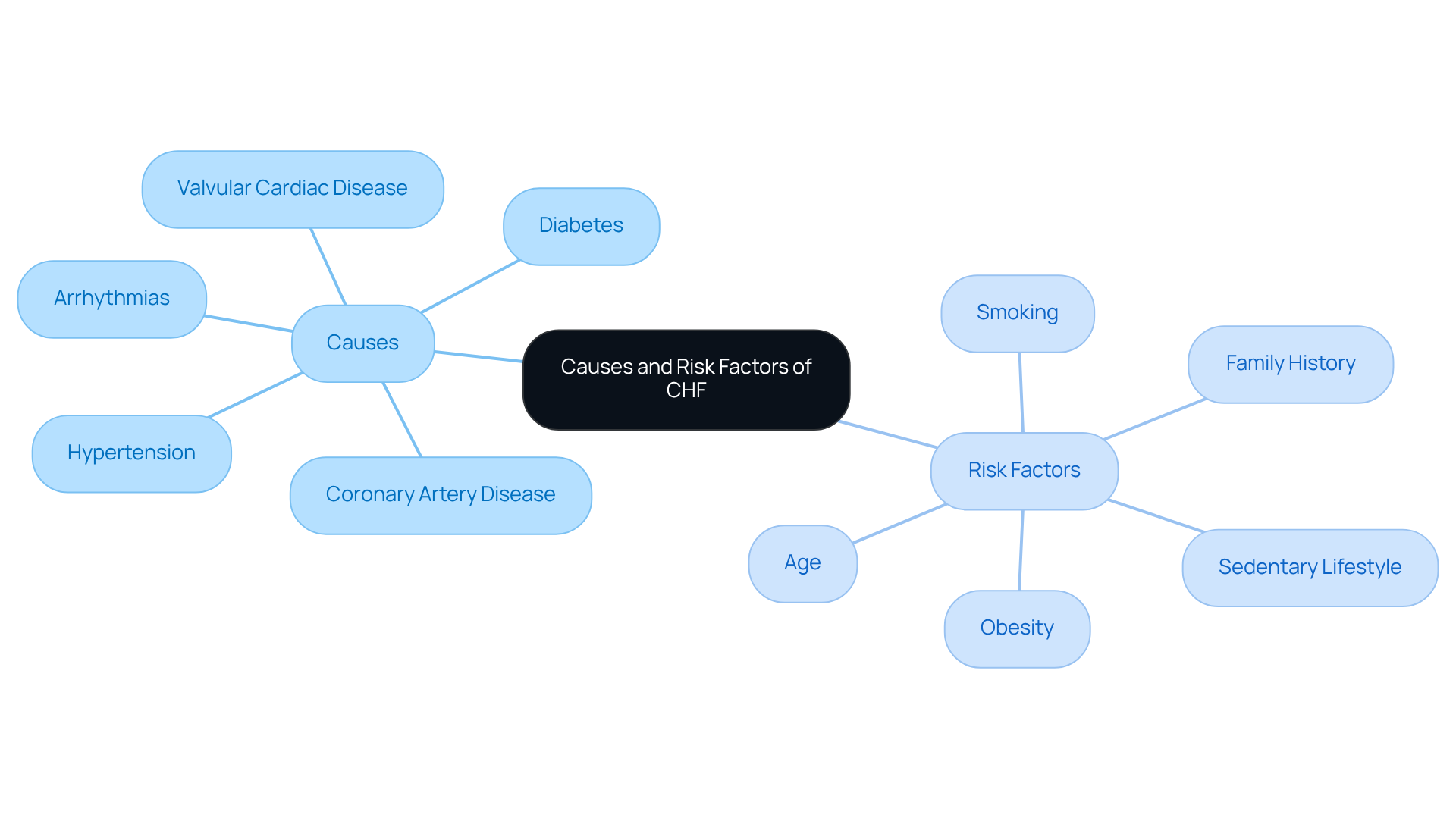
Symptoms of congestive cardiac failure (CHF) can manifest differently in elderly patients, often diverging from the usual presentations. Common symptoms to be aware of include:
Elderly patients frequently exhibit atypical symptoms that can complicate diagnosis. For instance, confusion or rapid weight gain—such as a rise of 2-3 pounds in a day or 5 pounds in a week—can be vital signs of worsening cardiovascular health. It’s essential for caregivers to be vigilant about these changes, as they may not align with the more common symptoms of CHF. Identifying these unusual indicators is crucial for prompt intervention and effective management of cardiac failure in older adults within the framework of CHF medical care. Remember, your attention and care can make a significant difference in their health journey.
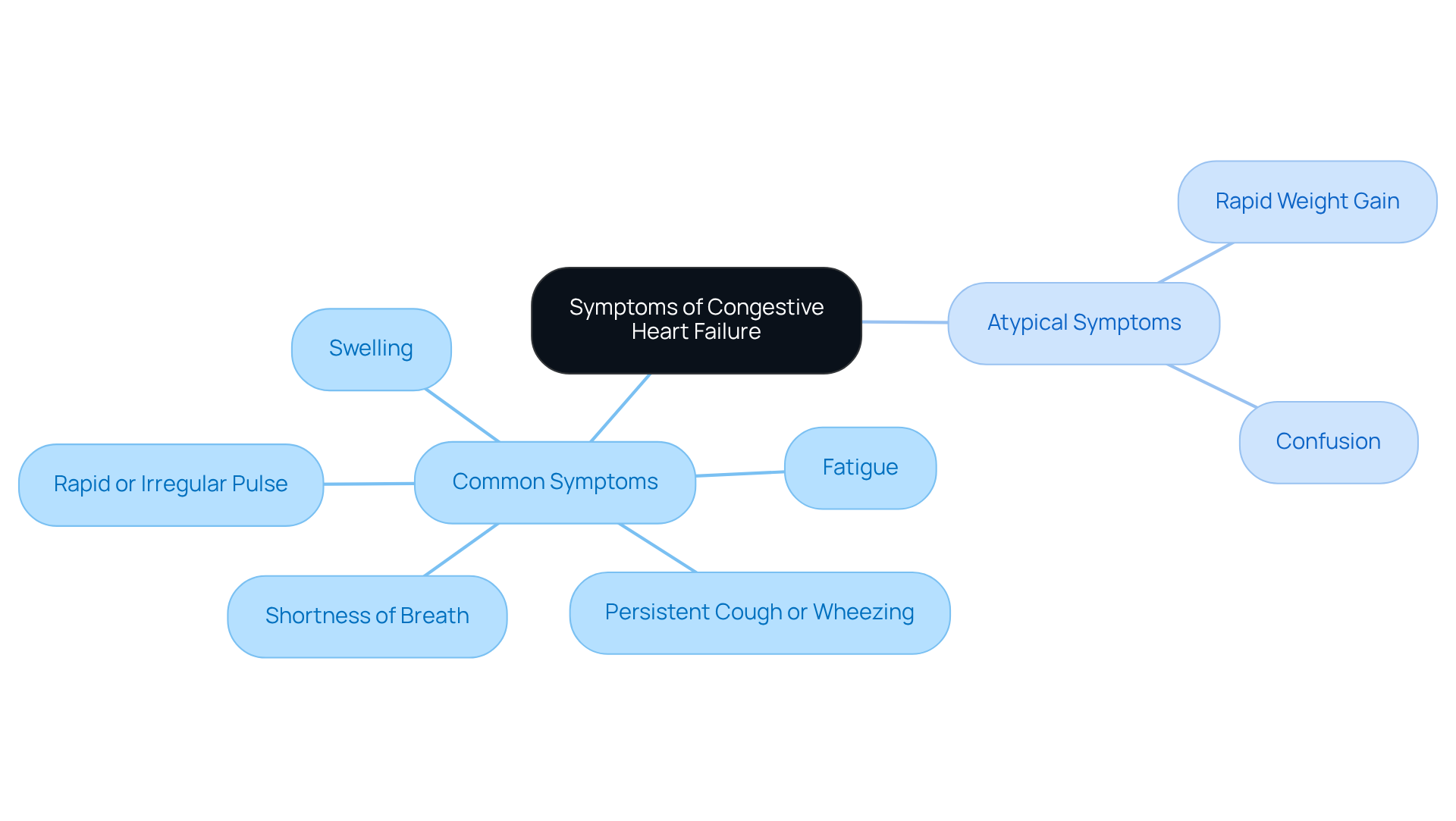
Diagnosing congestive heart failure (CHF medical) can feel overwhelming, but understanding the process can provide reassurance. Typically, it involves a combination of your medical history, a physical examination, and several diagnostic tests that offer valuable insights into your heart's health.
Together, these tests, enhanced by the advanced capabilities of CardioElite™, empower healthcare providers to determine the severity of CHF medical conditions and develop a personalized treatment plan just for you. Furthermore, Amavita offers extensive cardiovascular wellness initiatives, including the Optimal and Perfect programs. These programs provide continuous monitoring and support, ultimately improving your health outcomes through prompt and precise diagnostics. Remember, you are not alone in this journey; we are here to support you every step of the way.
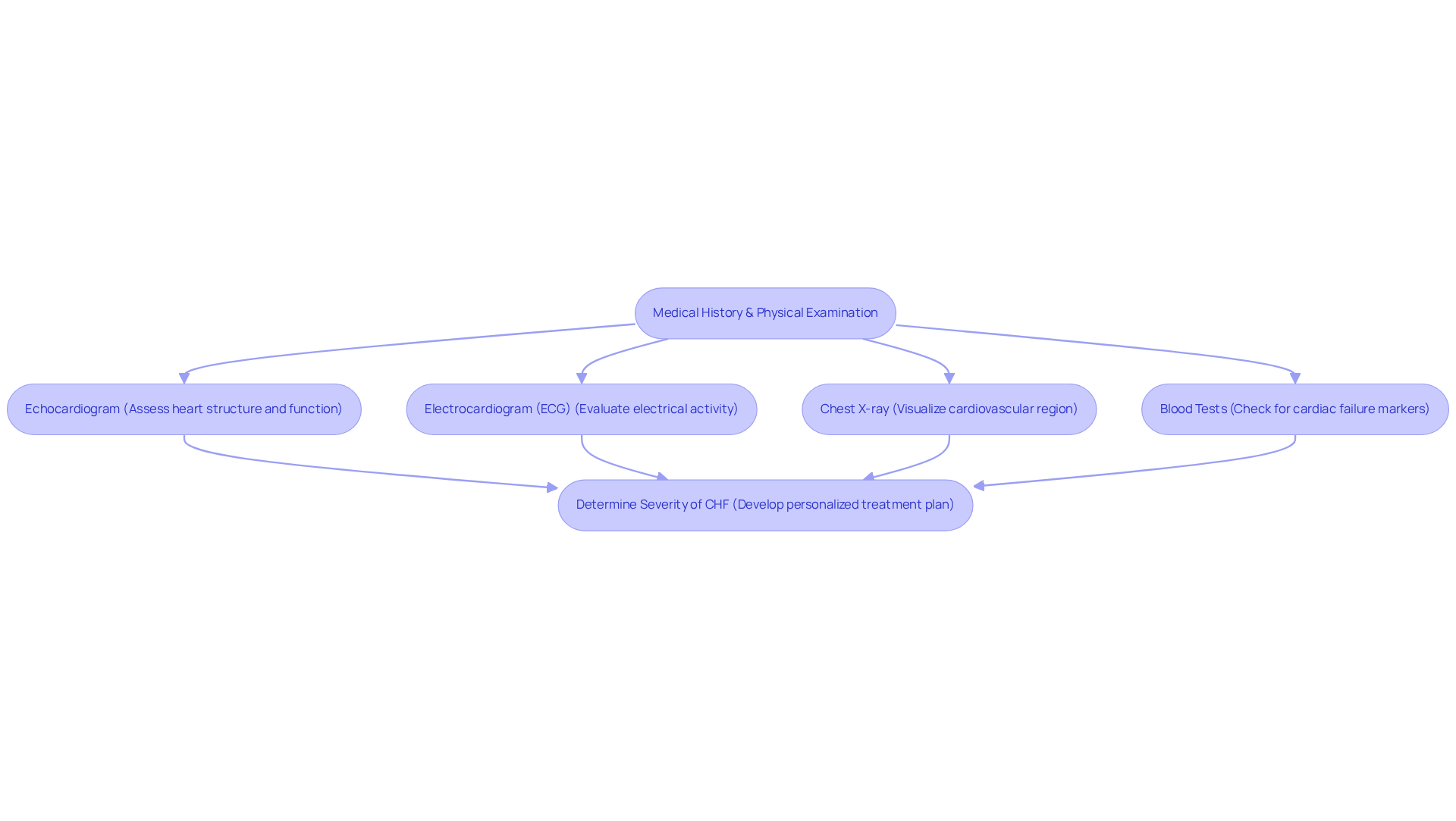
If you or a loved one is facing CHF medical, it's important to know that there are several treatment options available to help manage this condition. Medications play a key role in treatment. Diuretics can help reduce fluid buildup, while ACE inhibitors lower blood pressure, and beta-blockers improve heart function. These medications are designed to support your heart and enhance your overall well-being.
In addition to medications, lifestyle modifications are crucial. Simple dietary changes, regular exercise, and effective weight management can make a significant difference in your health. These adjustments not only support your treatment but also empower you to take charge of your health journey.
Furthermore, device therapy may be recommended in certain cases. Devices like implantable cardioverter-defibrillators (ICDs) can provide additional support for your heart. It's essential to discuss all available options with your healthcare provider to find what works best for you.
For some individuals, surgical options such as valve repair or replacement may be necessary. These procedures can be vital in improving heart function and overall quality of life.
A multidisciplinary approach is key to enhancing treatment effectiveness in CHF medical care. Collaborating with cardiologists, dietitians, and physical therapists can provide you with comprehensive care tailored to your needs. Remember, you are not alone in this journey. Support is available, and reaching out for help is a positive step towards better health.
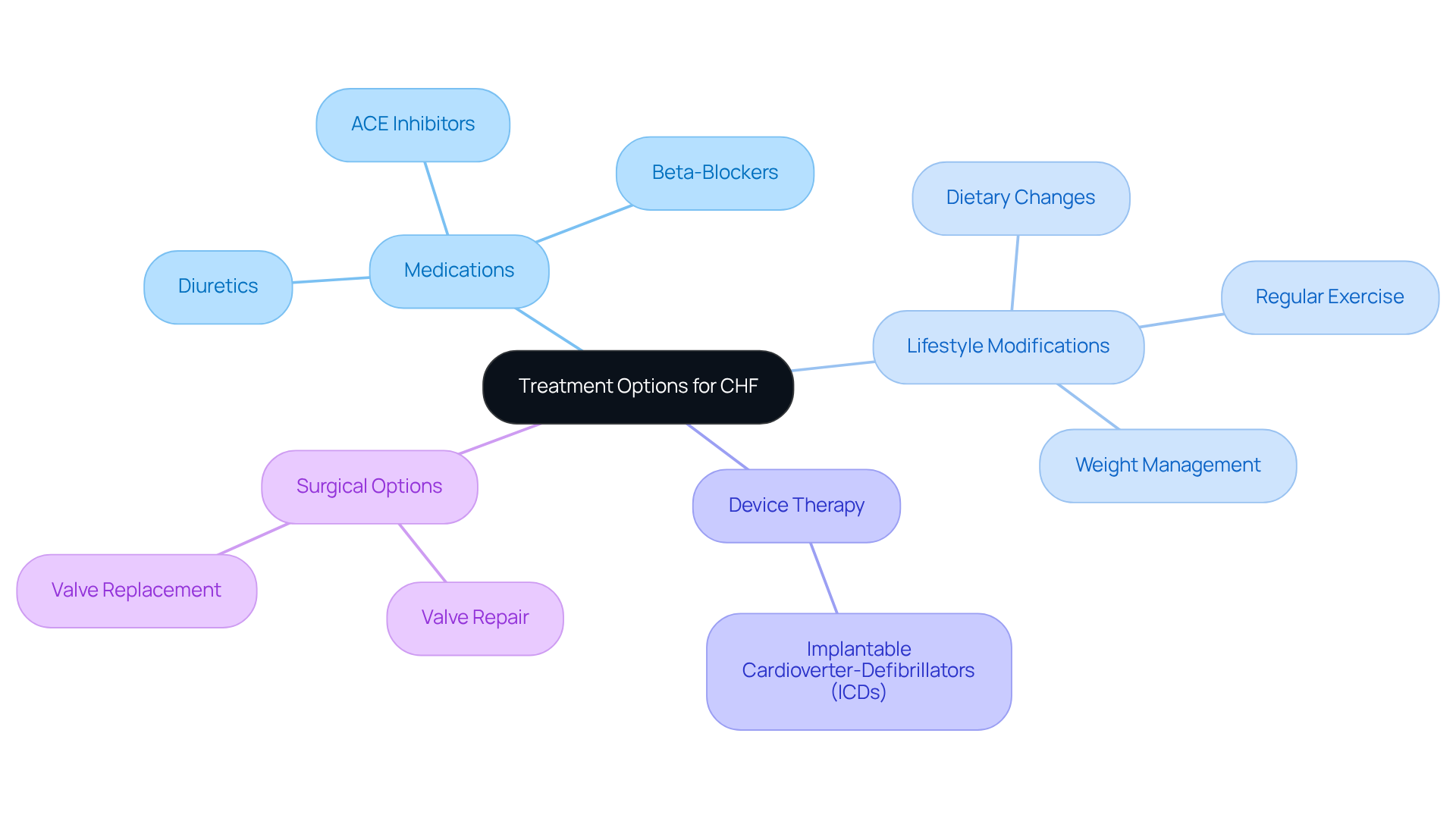
Implementing lifestyle changes can significantly improve the management of CHF medical issues. It’s important to know that small adjustments can lead to big improvements in your health and well-being. Here are some key changes to consider:
By making these changes, you can enhance your quality of life and better manage your CHF medical condition. Remember, you are not alone in this journey; support is available to help you every step of the way. Take these steps towards a healthier life, and don’t hesitate to reach out for assistance when needed.
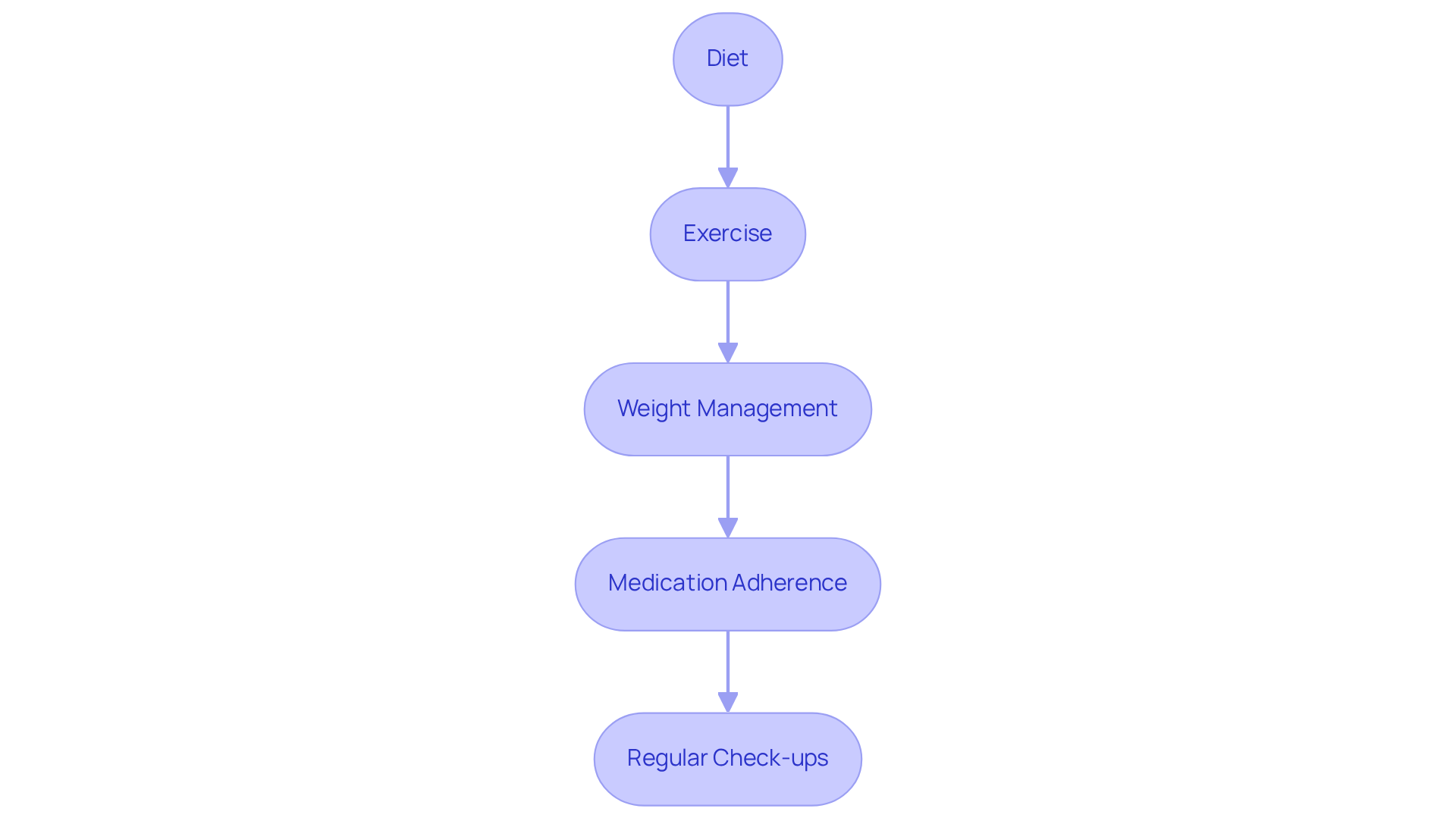
Understanding congestive heart failure (CHF) is crucial, especially for elderly patients who face unique challenges with this condition. CHF represents a significant health concern, as it involves the heart's inability to pump blood efficiently, leading to various complications. By recognizing the symptoms, causes, and available treatment options, patients and caregivers can take proactive steps toward managing this condition effectively.
The article delves into the multifaceted aspects of CHF, highlighting its causes such as:
It also emphasizes the importance of recognizing atypical symptoms in elderly patients. Accurate diagnosis through advanced testing methods is significant, and a comprehensive approach to treatment is outlined. This includes:
Each of these elements plays a vital role in improving the quality of life for those affected by CHF.
Ultimately, the journey of managing CHF requires a collaborative effort among healthcare providers, patients, and caregivers. Embracing lifestyle changes, adhering to treatment plans, and maintaining regular check-ups can significantly enhance health outcomes. It is imperative to remember that support is available, and reaching out for help is a positive step toward achieving better heart health. Taking charge of one's health journey can lead to a more fulfilling life despite the challenges posed by congestive heart failure.
What is Congestive Heart Failure (CHF)?
Congestive Heart Failure (CHF) is a long-term condition where the heart struggles to pump blood effectively, leading to a buildup of fluid in the lungs and other body tissues, causing discomfort and anxiety.
What are the common causes of CHF?
Common causes of CHF include coronary artery disease, hypertension, diabetes, valvular cardiac disease, and arrhythmias.
How does coronary artery disease contribute to CHF?
Coronary artery disease involves the narrowing of the arteries, which reduces blood flow to the heart, making it harder for the heart to function properly.
What role does hypertension play in CHF?
Hypertension, or elevated blood pressure, forces the heart to work harder, leading to thickening of the cardiac muscle over time, which can result in CHF.
What are some risk factors for developing CHF?
Risk factors for developing CHF include age, obesity, a sedentary lifestyle, smoking, and a family history of cardiovascular illness.
How does diabetes affect the risk of CHF?
Diabetes can damage blood vessels and nerves that are essential for a healthy cardiovascular system, increasing the risk of CHF.
What treatment options are available for CHF?
Treatment options for CHF include comprehensive cardiac evaluations, advanced imaging and testing, and minimally invasive treatment options tailored to individual needs.
How does Amavita Heart and Vascular Health® support patients with CHF?
Amavita Heart and Vascular Health® provides personalized treatment plans, focuses on preventive strategies, and offers innovative cardiovascular care to enhance the quality of life for elderly patients living with CHF.
Why is it important to understand the causes and risk factors of CHF?
Understanding the causes and risk factors of CHF can empower individuals to take proactive steps in managing and potentially preventing the condition.